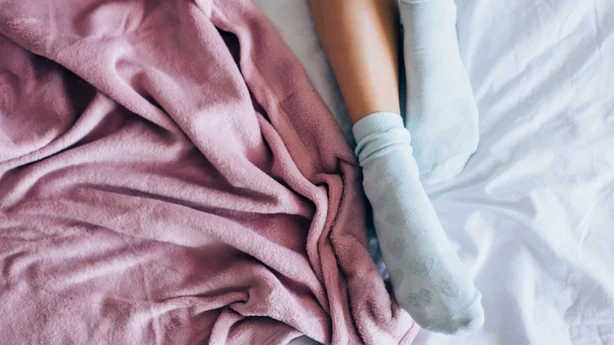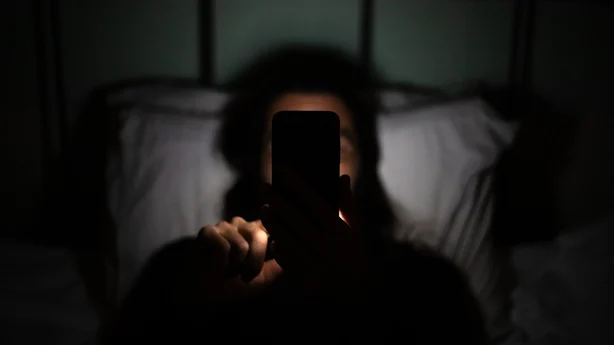Despite chatter that Daylight Savings Time (DST) will soon be abolished, it seems that it is sticking around for now, with the clocks due to go back an hour at 2am on Sunday, October 27, 2024.
In the lead up to the clocks 'falling back', some researchers are insisting that the twice yearly change is harming our sleep.
Professor Malcolm von Schantz of Northumbria University says that restoring permanent Standard Time (GMT) "aligns closely with the natural light-dark cycles of the day and night" and emphasises that "natural daylight in the morning is crucial for maintaining an optimal alignment of our body clocks with day and night, which is essential for optimal sleep and overall health".
Many of us struggle to adapt to this seasonal shift, and experience sleep issues as we enter the winter period as a result, so here are some lifestyle tips that will help minimise the disruption…
Start going to bed early
"We should slightly adjust our daily routines so that so the body clock gets a chance to slowly adjust its timing," advises Dr Kat Lederle, sleep and circadian rhythm specialist at The London General Practice. "Ideally you start to change the time you go to bed by 10-15 minutes in the days leading up to the autumn clock change.
"Then, come Sunday night it won’t be such a hard change anymore."

Create a relaxing bedtime routine
"Create a relaxing routine before bed to help you unwind and prepare for sleep," suggests Sammy Margo, sleep expert at Dreams and author of The Good Sleep Expert. "This can include reading a book, or listening to calming music."
You could also run yourself a warm bubbly bath.
"A warm bath in the evening before bed can help you get to sleep," says Abigail Green, senior physiologist at Nuffield Health. "After bathing in warm water, our body temperature starts to cool, and the subsequent drop in temperature signals that it’s time for sleep."
Keep electric devices out of the bedroom
"Take all electric devices out of the bedroom, as even small amounts of light can affect our sensitive ‘circadian rhythms’ or natural body clocks," explains Lisa Gunn, mental health prevention lead and senior clinician at Nuffield Health.

Avoid stimulants
"Avoid consuming caffeine or alcohol close to bedtime as they can interfere with your ability to fall asleep and stay asleep," advises Margo.
Adjust your meal times
"Going to sleep on a full stomach or hungry can interrupt sleep," says Gunn. "Consider having a food buffer and eating your main meal a few hours before bed. If you do start to get hungry before bed, then consider a small snack."
Try essential oils
If you are really struggling to sleep, try rubbing essential oils onto your wrists. Lavender in particular is known for its calming properties and could help you drift off quickly.
"It’s particularly beloved by those wanting to de-stress, relax the mind and body and get a more restful night’s sleep," says Greg Suthern, CEO of Pillow World. "Combined with the sweet floral aroma of ylang-ylang and the woody grounding scent of sandalwood, this inviting blend can improve mental clarity and help promote deep, peaceful sleep.
"We recommend four drops of lavender and three drops each of ylang-ylang and sandalwood."

Keep your bedroom dark and quiet
"Make sure your bedroom is dark, quiet, and cool to create a sleep-conducive environment," says Margo.
Get outdoors
"Exposure to natural light can help regulate your body clock and make it easier to fall asleep at night," says Margo. "Spend time outside during the day and open your curtains during the day to let in natural light."
Lederle especially recommends going outdoors for a fix of natural light during Saturday afternoon, the day before the clocks change.
Eat magnesium-rich foods
"Magnesium is an essential mineral which is depleted in times of stress, can help support muscle relaxation, improves sleep and can support mood," explains Maz Packham, nutritionist and consultant at W-Wellness.
‘Focusing on magnesium-rich foods such as dark leafy greens like spinach and kale, nuts and seeds like almonds can all help to improve your intake of magnesium through the diet."
Stay positive
Lifestyle changes can help, but the most important thing is our mindset, so try not to get stressed about the change.
"Mindset matters as it often does, so how you approach the clock change mentally, what thoughts you reinforce can affect your sense of wellbeing and sleep," explains Lederle.
Disclaimer: The copyright of this article belongs to the original author. Reposting this article is solely for the purpose of information dissemination and does not constitute any investment advice. If there is any infringement, please contact us immediately. We will make corrections or deletions as necessary. Thank you.






